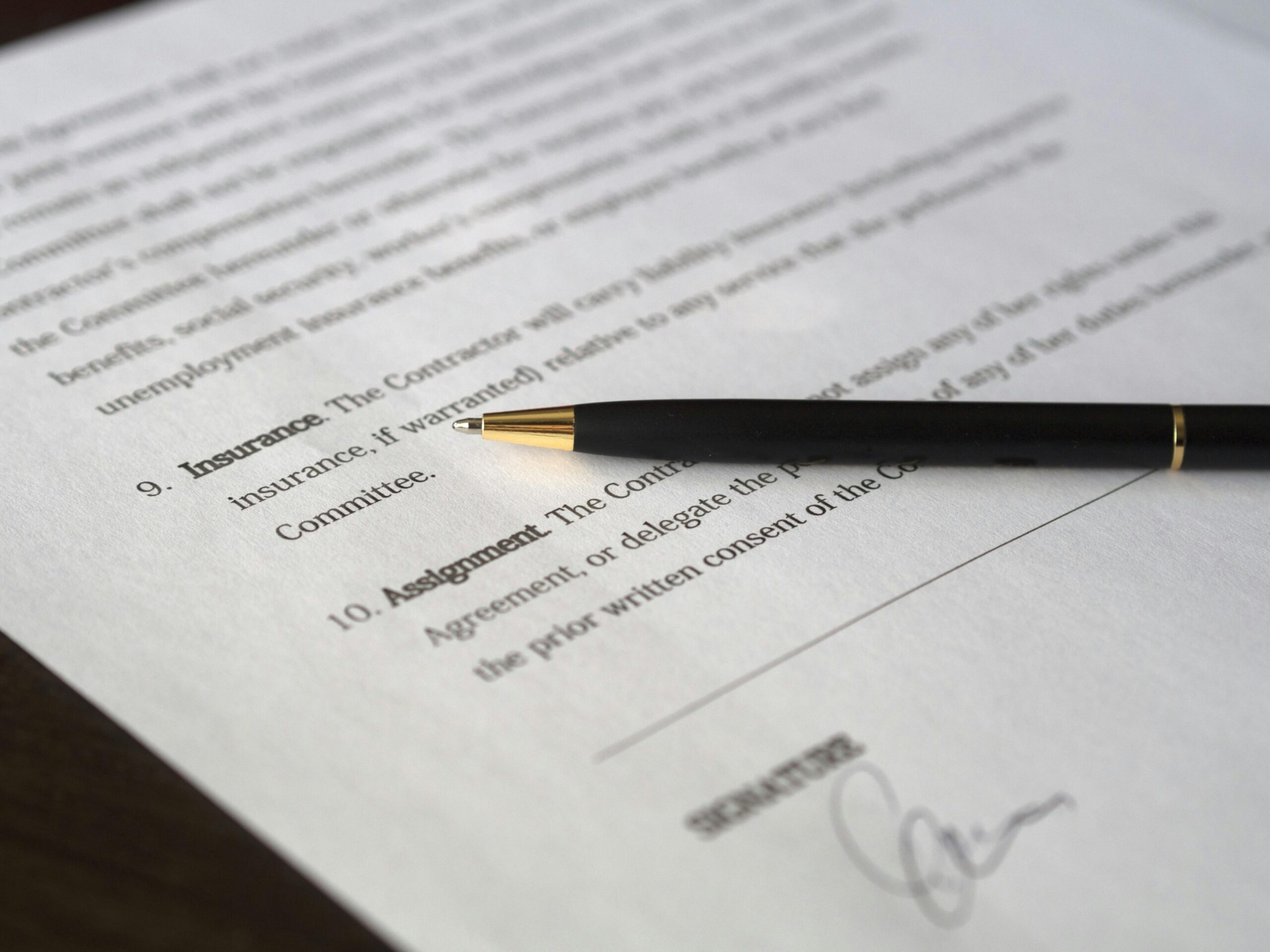
Today, rideshare services like Uber and Lyft have revolutionized transportation, making travel more convenient and accessible. However, with the increasing number of Uber and Lyft drivers on the road, rideshare accidents have become more common. We understand what rideshare accident victims should know about suing Uber or Lyft, and we have you covered.
If you’re injured in a rideshare collision, you may be entitled to seek compensation for your medical expenses, lost wages, emotional distress, and property damage. However, you should know what to expect with Uber and Lyft accidents.
Unlike traditional car accidents, where liability and insurance coverage are often straightforward, rideshare accidents introduce complex legal challenges. This guide will help accident victims understand their rights, what steps to take, and how to secure a fair settlement after an Uber or Lyft accident.
Understanding Liability in Uber and Lyft Accidents
Liability in a rideshare accident isn’t always clear-cut. Unlike traditional taxi drivers, Uber and Lyft drivers are considered independent contractors, not employees.
This distinction allows rideshare companies to avoid direct responsibility in many cases. However, liability depends on the driver’s status at the time of the accident, which determines whether Uber’s insurance policy or Lyft’s insurance policy applies.
Who Can Be Held Liable?
Depending on the accident details, liability could fall on:
- The Uber or Lyft driver, if they were negligent while operating the rideshare vehicle.
- Another negligent driver who caused the rideshare collision.
- The rideshare company, if their policies contributed to unsafe driving.
- A third party, such as a pedestrian, bicyclist, or even a vehicle manufacturer in the case of mechanical failure.
How the Driver’s Status Affects Insurance Coverage
Uber and Lyft’s liability coverage varies depending on whether the driver was actively engaged in a ride request or just logged into the app:
Driver Not Logged into the Uber or Lyft App
If a rideshare driver is not logged into the app when an accident occurs, it is treated like a standard car accident. This means the driver’s personal auto insurance is the primary coverage for any damages or injuries sustained.
Since the driver is not actively engaged in rideshare work at the time, Uber or Lyft provides no additional coverage.
In such cases, accident victims must seek compensation through the negligent driver’s personal insurance policy, which may have lower coverage limits than commercial policies.
Driver Logged In but No Ride Request Accepted
If an Uber or Lyft driver is logged into the app but has not yet accepted a ride request, the rideshare company provides limited liability coverage. This includes $50,000 per person for bodily injury, $100,000 per accident for bodily injury, and $25,000 for property damage.
However, this liability insurance only applies if the driver’s personal insurance does not fully cover the damages.
Many personal auto insurance policies exclude coverage for accidents that occur while a driver is engaged in commercial activity, making this limited rideshare coverage a crucial safety net for accident victims.
Driver Accepted a Ride Request or Had a Passenger in the Vehicle
Once a rideshare driver accepts a ride request or has a passenger in the Uber or Lyft vehicle, the rideshare company’s insurance policy provides $1 million in liability insurance. This coverage applies from the moment the driver accepts the trip until the ride is completed.
It covers the rideshare accident victim’s medical costs, lost wages, and property damage, ensuring substantial protection for those injured in Uber and Lyft accidents.
Additionally, this policy includes uninsured/underinsured motorist coverage, which helps compensate victims if the at-fault driver has inadequate insurance to cover the damages.
Understanding these insurance policies is crucial when filing insurance claims or deciding to sue Uber or Lyft for damages.

Steps to Take After an Uber or Lyft Accident
Taking the right steps after an Uber or Lyft accident can significantly impact your ability to obtain compensation. Here’s what you should do immediately after a rideshare collision with an Uber or Lyft driver for fair compensation.
1. Seek Immediate Medical Attention
- Your health comes first. Even if you don’t feel injured, some injuries (like concussions or internal bleeding) may not be apparent right away.
- Call 911 and request medical assistance at the accident scene.
- Delaying medical care can weaken your personal injury lawsuit, as insurance companies may argue that your injuries weren’t serious.
2. Document the Accident Scene
- Take photos and videos of the rideshare vehicle, surrounding damages, and injuries.
- Get witness statements and contact information.
- If you were a passenger, screenshot your Uber or Lyft ride details from the Uber app or Lyft app.
- Write down details of the accident while they are fresh in your mind.
3. Notify the Rideshare Company and Insurance Providers
- Report the accident through the Uber app or Lyft app, but be careful with what you say.
- Insurance companies look for ways to minimize or deny claims. Do not give a recorded statement without first consulting an experienced personal injury lawyer.
4. Contact a Rideshare Accident Lawyer
- A law firm specializing in rideshare accidents can help you navigate the legal process.
- A free consultation with a rideshare accident lawyer can help you understand your options.
An Uber accident can be a life-changing scenario, but with the help of the right law firm, you can make your life easier. However, before you consider legal representation, you should know the challenges these cases might bring.
Challenges in Suing Uber or Lyft
While it is possible to sue Uber or Lyft, these companies have aggressive legal teams that fight to avoid liability. Here are some of the biggest challenges:
1. Limited Liability Coverage
- Even though Uber and Lyft provide liability insurance, their limited liability coverage may not fully cover all damages.
- If your medical bills exceed Uber’s insurance policy limits, you may have to file a claim against the rideshare driver’s personal auto insurance.
2. Insurance Companies Denying Claims
- Insurance companies frequently deny claims by arguing:
- The driver was not actively engaged in a ride.
- The injuries were pre-existing.
- The accident victim did not provide sufficient documentation.
- Having a rideshare accident lawyer can help you counter these tactics.
3. Proving Negligence
- To sue Uber or Lyft, you must prove that their rideshare driver or company policies were negligent.
- This requires accident reports, medical records, witness statements, and expert testimony.
If you want to ensure Lyft provides insurance coverage, you should understand the types of compensation available for each case when determining liability with a Lyft accident lawyer.

Types of Compensation Available for Rideshare Accident Victims
If you were injured in an Uber or Lyft accident, you may be entitled to compensation for:
1. Medical Expenses
Covering medical bills includes hospital stays, surgeries, prescription medications, rehabilitation, and physical therapy.
2. Lost Wages
If you were unable to work due to the accident, you can claim lost income and future earnings.
3. Property Damage
If your vehicle was involved in the accident, rideshare insurance policies may cover property damage.
4. Pain and Suffering
Emotional distress and mental anguish can be compensated in personal injury lawsuits.
PTSD, anxiety, depression, and long-term trauma are common in severe injuries.
5. Punitive Damages
If the Uber or Lyft driver was reckless (e.g., driving under the influence), the court may award punitive damages.
Knowing these compensation types ensures you get a deserving payout from your lawsuit, saving you from unwanted financial and emotional damage.

Legal Options: Should You Sue Uber or Lyft?
If you are facing severe injuries or insurance companies are denying your claim, filing a personal injury lawsuit against Uber or Lyft might be necessary. A rideshare accident attorney can guide you more about how to handle such cases, but here are some common cases in which you can sue Uber or Lyft
When to Sue Uber or Lyft
- If Uber or Lyft’s insurance coverage does not fully cover your damages.
- If liability claims are being wrongfully denied.
- If insurance companies are offering a lowball settlement.
A skilled personal injury attorney can assess whether you should sue Uber or Lyft directly or file a claim against the rideshare driver’s personal insurance. They can help with all the questions, such as “Can you sue Uber for an accident?“
Final Thoughts
If you’ve been involved in an Uber or Lyft accident, you don’t have to navigate the legal process alone. Uber and Lyft drivers are often protected by corporate legal teams. However, with the right rideshare accident lawyer, you can fight for a fair settlement.
Protecting Your Rights After a Rideshare Accident At BLG
Don’t wait—schedule a free consultation with a rideshare accident lawyer at Bourassa Law Group today to discuss your case and protect your rights. We can help rideshare accident victims with their settlements and get a good payout at the end.




